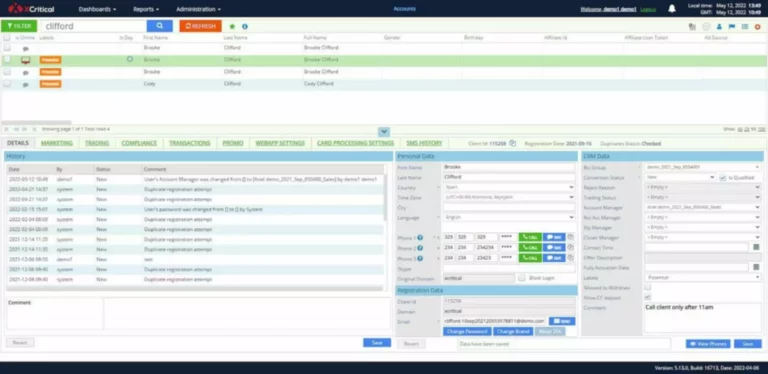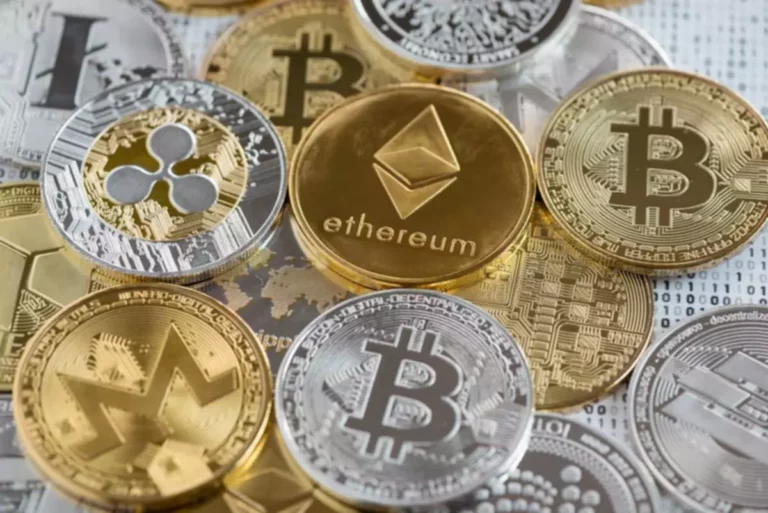Content
Therefore, the Decentralized finance securities market is overseen by regulatory agencies like the Securities and Exchange Commission (SEC) in the United States to protect investors and ensure fair trading practices. In the context of Crypto trading, it’s crucial to distinguish between Commodity vs. Security. Securities represent ownership in a company, while Commodities are tangible goods or financial instruments traded on exchanges.
Does Technical Analysis work for Securities?
Start-ups issue debt instruments such as bonds and convertible bonds to raise the necessary funds from investors. The investors in turn lend money directly to the company, which then has to pay back both interest and principal over time. These orders contain essential information such as the security’s symbol, the number of shares or units, the order type (e.g., market, limit, or stop), https://www.xcritical.com/ and any specific conditions for execution.

Which of these is most important for your financial advisor to have?
Another key argument that cryptocurrencies should not be considered securities revolves around their decentralized nature. The Howey test specifies that a difference between security and commodity security involves investing in a common enterprise and profiting from the efforts of a third party. The lack of a centralized entity underlying cryptocurrencies supports the idea that they should be classified as commodities rather than securities. Alternative investments, traditionally available to high-net-worth individuals, are accessible to everyday investors on SoFi’s easy-to-use platform.
What services does Funded Futures Network offer?
However, you have to consider your risk tolerance and financial goals in spreading your money across assets. A major strength securities have over commodities is the ability to generate passive income. You can buy dividend stocks and receive quarterly cash distributions just for holding onto your shares. You can also sell covered calls and cash-secured puts to realize additional cash flow from your portfolio.
Commodities vs. Securities: A Comprehensive Comparison
Commodities can help you realize profits and act as useful hedges against inflation. However, these investments can be volatile, and factors like climate and macroeconomic conditions impact their value. A commodity is a basic good used in commerce that is interchangeable with other goods of the same type. The fundamental difference between a commodity and a security hinges on what is being bought and sold. Commodities are basic goods that can be traded or exchanged, while securities involve taking an ownership stake or providing credit to a common enterprise with the hopes of earning a profit.

Traders and investors may purchase crypto assets for speculative purposes—hoping to profit from price swings—which is another way that cryptocurrencies mirror commodities. Commodities are raw materials or agricultural products traded on exchanges and are characterized by their physical nature, homogeneity, and sensitivity to market forces. Both commodities and securities are affected by broader market conditions. While the specific factors that influence their prices may differ, both are subject to the whims of investor sentiment, economic indicators, and geopolitical events. Both commodities and securities play a crucial role in diversifying an investment portfolio.
Shareholders receive dividends as part of a company’s profits, as well as capital appreciation if its value increases. Debt securities represent loans granted from investors to borrowers such as corporations or governments, representing loans made by an investor on behalf of that borrower. Securities are financial instruments that represent ownership or debt obligations in an entity, such as a corporation, government, or organization.
These regulatory bodies have different rules and guidelines, impacting how these assets are traded and what information must be disclosed to investors. These could be shares in a company, bonds issued by governments or corporations, or derivative products linked to various underlying assets. These encompass a wide range of goods, including energy resources like oil and gas, agricultural produce such as corn or wheat, and precious metals like gold or silver. Fungibility refers to the interchangeability of units within a Currency, where each unit is identical and interchangeable with others. And as you can gather, with a virtual Currency this definition or distinction is challenging.
- Although crypto advocates are against strict regulations for cryptocurrency, doing so will bring a wide range of investments.
- This allows employees to purchase shares at a set price – which helps in attracting talent while aligning the employees’ interests with those of the company.
- These orders contain essential information such as the security’s symbol, the number of shares or units, the order type (e.g., market, limit, or stop), and any specific conditions for execution.
- Registration ensures investors have access to accurate and complete information about securities being offered for sale.
- On the other hand, token types like security tokens are classified as securities because they represent shares of projects or a company.
- All securities are considered relatively easy to trade due to technological advancements and online brokerage platforms.
- Equity financing is an efficient and popular method of raising capital for start-ups.
Stocks give you partial ownership of a company and rise or fall based on a company’s financial performance. Bonds do not give you partial ownership of a company, but you receive interest payments until the bond matures. Rising demand for smartphones and other electronic devices can lead to higher cobalt prices.

Soft commodities instead refer to those that are grown, such as agricultural products. These include wheat, cotton, coffee, sugar, soybeans, and other harvested items. You might consider allocating up to 10% of your portfolio to a mix of commodities.
In option trading, traders buy & sell stocks within a specific date & price. Certificated securities are physical documents that represent ownership of a financial asset, such as stocks, bonds, or certificates of deposit. They include details like the owner’s name, the number of shares or bonds, and the issuer’s name. Debt securities represent loans made by investors to the issuer in exchange for interest payments and the repayment of principal at maturity. Debt securities involve a fixed obligation for the issuer to make periodic interest payments and repay the principal.
This ease of transfer increases the liquidity of securities, making them an attractive option for investors. Price fluctuations can occur rapidly and without warning, influenced by any number of unpredictable events, from a poor harvest due to adverse weather to a surge in demand from emerging markets. Depending on your jurisdiction, some products or services might not be available.
A concrete determination on whether crypto counts as a commodity or a security could have broad implications for the regulatory framework and the future of cryptocurrencies. The differentiation between commodities and securities may seem relatively straightforward when it comes to traditional assets like gold and oil or stocks and bonds. However, digital assets like cryptocurrencies have stretched the delineation between the two types of assets. Securities are typically traded on stock exchanges or over-the-counter markets, and their prices are influenced by company performance, economic factors, and investor sentiment.
You should consider several criteria, such as your age, income, expenses and current financial status when making that decision. It is crucial that you determine your investment goals before you begin. Which goal – either long-term growth or consistent income – you prioritize will determine what options are available to you. Bearer securities are less secure and less transparent compared to registered securities, as they are easily transferred without any formal record. Bearer securities are not widely preferred today due to their lack of transparency and higher risk of theft or loss. But are sometimes preferred by some individuals seeking anonymity in their transactions.
The broker routes it to the stock exchange or an alternative trading venue once the order is placed. The exchange’s electronic trading system matches buy and sell orders based on price and order type. Market makers or specialists facilitate the matching process by maintaining an inventory of securities and providing liquidity in some cases. The major point of difference between commodities and securities lies in their nature.
